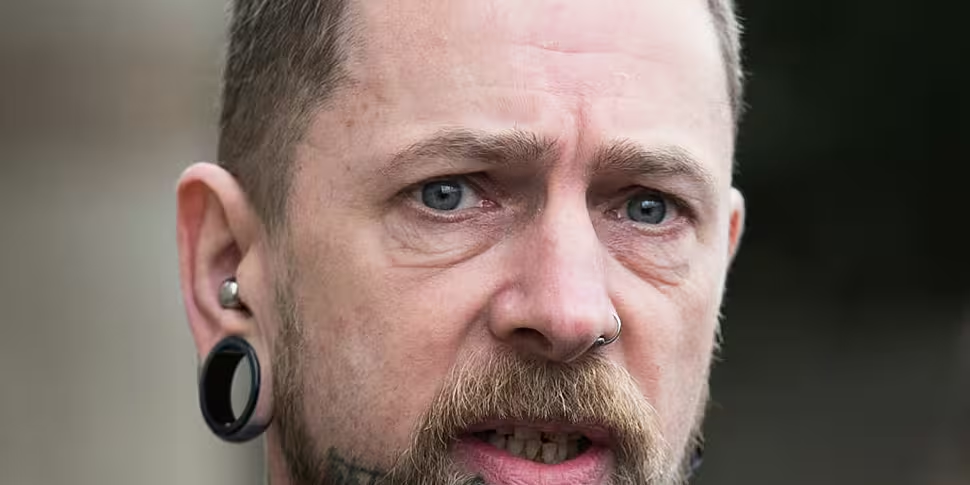A tattooist who calls himself 'Dr Evil' has admitted causing grievous bodily harm for "unlawful" body modification procedures he carried out on clients.
Brendan McCarthy (50) confessed to three charges of grievous bodily harm for a tongue-splitting procedure, removing an ear, and cutting off a nipple.
The procedures, carried out on three separate clients at Dr Evil's Body Modification Emporium in Wolverhampton, England were performed by McCarthy without anaesthetic.
McCarthy changed his pleas to guilty on Tuesday after a two-year legal battle in which he claimed consent forms signed by his clients gave him a legal defence.
However in a 12-page UK Court of Appeal ruling, three judges dismissed this claim stating that it was not in the public interest that a person could wound another for no good reason.
In addition, the judges refused McCarthy permission to appeal to Britain's Supreme Court.
The tattooist had first appeared at Wolverhampton Crown Court in 2017, when he denied six counts relating to the three procedures.
At the time Judge Amjad Nawaz ruled McCarthy could not use his clients' written permission as a defence, noting an incident in which a husband branded his wife's buttocks with a hot knife.
McCarthy took the case to the UK Court of Appeal, citing the "personal autonomy" of his customers, and justifying the procedures in terms of their consent and will.
Although the court judges accepted evidence the ear removal procedure has been conducted quite well, they delivered a harsh rebuke of body modification procedures in general.
They explained: "The case advanced by the appellant is that the procedures he conducted, albeit that they caused really serious harm, should be immunised from the criminal law of assault, just as surgical procedures performed by medical practitioners and those who take part in properly organised boxing matches attract protection."
"Medical procedures for no medical reason"
However, the judges ruled: "There is, to our minds, no proper analogy between body modification, which involves the removal of parts of the body or mutilation as seen in tongue-splitting, and tattooing, piercing or other body adornment.
"What the defendant undertook for reward in this case was a series of medical procedures for no medical reason.
"Those seeking body modification of the sort we are concerned with in this appeal invited the appellant to perform irreversible surgery without anaesthetic with profound long-term consequences.
"The fact that a desire to have an ear or nipple removed or tongue split is incomprehensible to most, may not be sufficient in itself to raise the question whether those who seek to do so might be in need of a mental health assessment.
"The personal autonomy of his customers does not provide the appellant with a justification for removing body modification from the ambit of the law of assault."
Despite admitting to GBH, which Judge Nawaz said would ordinarily mean that McCarthy would be held in custody before being sentenced, the tattooist was released on bail to return on March 21st.
He was informed that this was not an indication of the sentencing, and was told not to undertake surgical procedures while bailed.
The Crown Prosecution Service said it was a "landmark" case, and stressed that McCarthy had no medical qualifications and was not a registered practitioner.
Rhiannon Jones, a senior prosecutor, said: "This prosecution was not brought to seek to curtail individual choice or freedom of self-expression but because McCarthy, who was licensed to carry out tattooing and body piercing, was performing what were significant surgical procedures in a tattoo studio in Wolverhampton.
"This case confirms the existing law that surgical procedures must be carried out by properly trained, qualified and regulated surgeons or health care professionals.
Ms Jones added: "McCarthy was none of these and as a result his surgical procedures, albeit carried out at the request of his clients, were unlawful."









